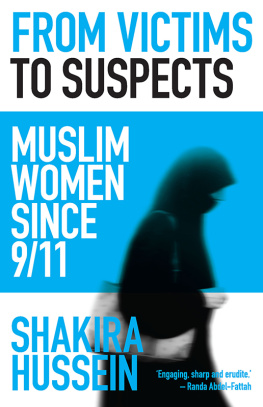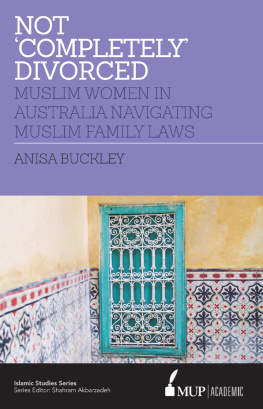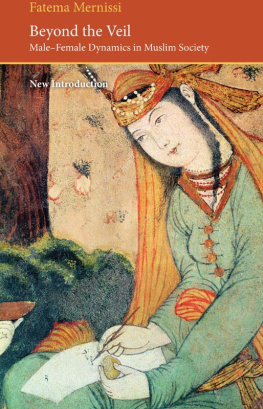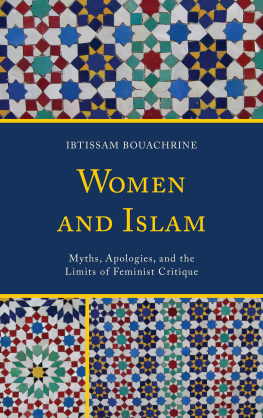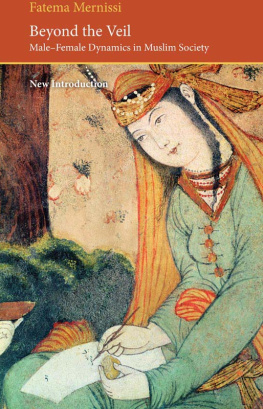
Narratives of Muslim Womanhood and Women's Agency
Portrayals of Islamic teachings in mass media often present Muslim women as victims of patriarchal norms. Often covered in a full veil, and without individuality, they tend to be depicted using a monochrome image, across Muslim countries and regions. It does not portray the social reality and expectations of Muslim women, which are in fact diverse and contextual. This book consists of articles that attempt to answer the question, are Muslim women merely passive objects in constructing their role, despite the spread of social media and the Internet, the increased demands of earning disposable income for their families and their migration to non-Muslim countries around the world?
It closely examines womens agency in negotiating their role in Muslim-majority societies and in new places of settlement (Australia). These articles analyse Muslim womens narratives in a wide range of economic, political, social and cultural milieu and their relationship to identity construction and portrayal in the new millennium.
This book was originally published as a special issue of Islam and ChristianMuslim Relations.
Minako Sakai teaches at Indonesian Studies and Southeast Asian Social Inquiry School of Humanities and Social Sciences, at the University of New South Wales, Canberra, Australia. She has published widely on Islamic businesses, microfinance and women, development policies and identity politics in Indonesia. She is also an Adjunct Associate Professor at CAP, the Australian National University.
Samina Yasmeen is Director of the Centre for Muslim States and Societies and teaches Political Science and International Relations at the University of Western Australia. She has conducted extensive research on Islamisation, jihadism and women in Pakistan, as well as Muslim citizenship in Western liberal societies.
Narratives of Muslim Womanhood
and Women's Agency
Edited by
Minako Sakai and Samina Yasmeen
First published 2018
by Routledge
2 Park Square, Milton Park, Abingdon, Oxon, OX14 4RN, UK
and by Routledge
711 Third Avenue, New York, NY 10017, USA
Routledge is an imprint of the Taylor & Francis Group, an informa business
2018 University of Birmingham
All rights reserved. No part of this book may be reprinted or reproduced or utilised in any form or by any electronic, mechanical, or other means, now known or hereafter invented, including photocopying and recording, or in any information storage or retrieval system, without permission in writing from the publishers.
Trademark notice: Product or corporate names may be trademarks or registered trademarks, and are used only for identification and explanation without intent to infringe.
British Library Cataloguing in Publication Data
A catalogue record for this book is available from the British Library
ISBN 13: 978-1-138-56066-6
Typeset in Minion Pro
by diacriTech, Chennai
Publishers Note
The publisher accepts responsibility for any inconsistencies that may have arisen during the conversion of this book from journal articles to book chapters, namely the possible inclusion of journal terminology.
Disclaimer
Every effort has been made to contact copyright holders for their permission to reprint material in this book. The publishers would be grateful to hear from any copyright holder who is not here acknowledged and will undertake to rectify any errors or omissions in future editions of this book.
Contents
Minako Sakai and Samina Yasmeen
Minako Sakai and Amelia Fauzia
Samina Yasmeen
Bob Olivier
Nicolaas Warouw
Bernard Adeney-Risakotta
Shamim Samani
The chapters in this book were originally published in two special issues of Islam and ChristianMuslim Relations. When citing this material, please use the original page numbering for each article, as follows:
Minako Sakai and Samina Yasmeen
Islam and ChristianMuslim Relations, volume 27, issue 4 (2016) pp. 371377
Minako Sakai and Amelia Fauzia
Islam and ChristianMuslim Relations, volume 27, issue 3 (July 2016) pp. 229249
Samina Yasmeen
Islam and ChristianMuslim Relations, volume 27, issue 3 (July 2016) pp. 251265
Bob Olivier
Islam and ChristianMuslim Relations, volume 27, issue 3 (July 2016) pp. 267282
Nicolaas Warouw
Islam and ChristianMuslim Relations, volume 27, issue 3 (July 2016) pp. 283302
Bernard Adeney-Risakotta
Islam and ChristianMuslim Relations, volume 27, issue 3 (July 2016) pp. 303318
Shamim Samani
Islam and ChristianMuslim Relations, volume 27, issue 3 (July 2016) pp. 319332
For any permission-related enquiries please visit:
http://www.tandfonline.com/page/help/permissions
Bernard Adeney-Risakotta is Professor of Religion and Social Science and Founding Director and International Representative at the Indonesian Consortium for Religious Studies in the Graduate School of Gadjah Mada University in Yogyakarta, Indonesia.
Amelia Fauzia is a Visiting Fellow at School of Humanities and Social Sciences, University of New South Wales Canberra, Australia. She is a lecturer at Syarif Hidayatullah State Islamic University Jakarta, Indonesia, and senior research fellow of the Religion and Globalisation Cluster at the Asia Research Institute, National University of Singapore.
Bob Olivier is based at the Centre for Muslim States and Societies, and Political Science and International Relations at the University of Western Australia.
Minako Sakai teaches at Indonesian Studies and Southeast Asian Social Inquiry School of Humanities and Social Sciences, at the University of New South Wales, Canberra, Australia. She has published widely on Islamic businesses, microfinance and women, development policies and identity politics in Indonesia.
Shamim Samani is Honorary Research Fellow at the Centre for Muslim States and Societies at the University of Western Australia.
Nicolaas Warouw is Lecturer in Indonesian Studies at School of Humanities and Social Sciences at the University of New South Wales, Australia.
Samina Yasmeen is Director of the Centre for Muslim States and Societies and teaches Political Science and International Relations at the University of Western Australia. She has conducted extensive research on Islamisation, jihadism and women in Pakistan, as well as Muslim citizenship in Western liberal societies.
Minako Sakai and Samina Yasmeen
In Islamic teaching presented in the mass media, Muslim women tend to be portrayed as victims of patriarchal norms. Often covered in a full veil, and so without individuality, they tend to be depicted using a monochrome image across Muslim countries and regions. This is despite the fact that the social reality and expectations of Muslim women are diverse and contextual. Are Muslim women merely passive objects in constructing their role, despite the spread of social media and the Internet, the increased demands of earning disposable income for their families, and their migration to non-Muslim countries around the world?


